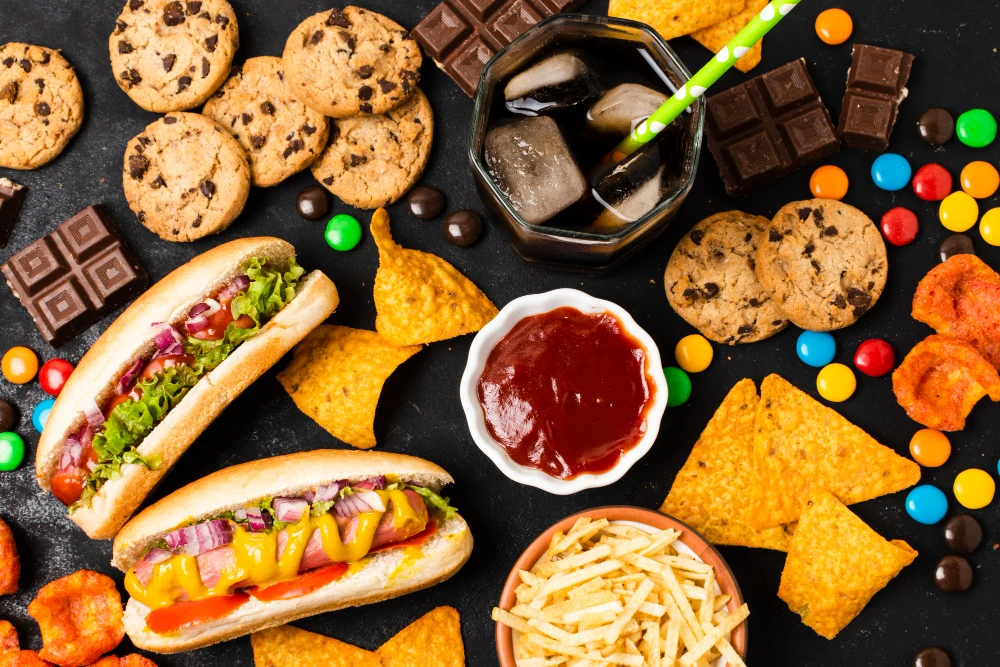The Role of Testosterone
Testosterone, a hormone primarily known for its role in male reproductive tissues, also influences various aspects of physical and mental well-being. It stimulates sperm production and regulates sexual function, while also contributing to the growth and maintenance of muscle mass. Adequate testosterone levels are vital for overall health, impacting mood, cognition, and energy levels. Understanding the importance of testosterone is crucial for optimizing physical and mental health.
What Causes Low Testosterone Levels?
Low testosterone levels, also known as hypogonadism, can be caused by various factors, both physiological and medical. It’s important to note that testosterone levels naturally decline with age, but some people may experience abnormally low levels for reasons other than aging. Here are some common causes of low testosterone levels:
- Aging: Testosterone levels typically decrease as men get older. This is known as age-related or late-onset hypogonadism.
- Medical Conditions:
- Hypogonadism: This is a condition where the testes (in men) or ovaries (in women) do not function properly. It can be congenital (present from birth) or acquired later in life.
- Obesity: Excess body fat can lead to lower testosterone levels, as fat cells can convert testosterone into estrogen.
- Diabetes: Uncontrolled diabetes can affect hormone regulation and lead to low testosterone levels.
- Chronic Illness: Conditions such as chronic kidney disease, liver disease, and HIV/AIDS can impact testosterone production.
- Pituitary Disorders: Problems with the pituitary gland, which controls hormone production, can disrupt testosterone production.
- Medications: Certain medications can interfere with testosterone production, including opioids, glucocorticoids, and some medications used to treat prostate cancer.
- Testicular Injury or Surgery: Trauma to the testicles or surgery involving the testicles can damage the cells responsible for testosterone production.
- Hormone Disorders: Conditions like Klinefelter syndrome, Kallmann syndrome, and adrenal disorders can lead to low testosterone levels.
- Radiation or Chemotherapy: Cancer treatments like radiation therapy and chemotherapy can damage the testicles and reduce testosterone production.
- Chronic Stress: Prolonged exposure to high levels of stress can disrupt hormone balance, potentially leading to low testosterone.
- Lifestyle Factors:
- Poor Diet: A diet lacking in essential nutrients, especially zinc and vitamin D, can contribute to low testosterone levels.
- Lack of Exercise: Physical inactivity can lead to reduced testosterone production.
- Sleep Deprivation: Inadequate sleep can disrupt hormone regulation and lower testosterone levels.
- Substance Abuse: Excessive alcohol consumption and illicit drug use, such as anabolic steroids, can negatively affect testosterone levels.
- Genetic Factors: Some individuals may have a genetic predisposition to lower testosterone levels.
- Environmental Toxins: Exposure to certain environmental toxins, such as pesticides and industrial chemicals, can disrupt hormone production.
It’s important to note that the symptoms of low testosterone can vary widely and may include fatigue, reduced sex drive, erectile dysfunction, mood changes, and decreased muscle mass.




Foods that Lower Testosterone
There are several foods and dietary factors that may lower testosterone levels in men. It’s important to note that these effects are generally subtle and may not have a significant impact on testosterone levels in otherwise healthy individuals. However, if you have concerns about your testosterone levels, it’s a good idea to consult with a healthcare professional for a proper evaluation and guidance. Here are some foods and dietary factors that may potentially lower testosterone:
- Soy Products: Soy contains compounds called phytoestrogens, which mimic the effects of estrogen in the body. High consumption of soy products may potentially lower testosterone levels, but the effect is generally modest and varies from person to person.
- Flaxseeds: Flaxseeds are rich in lignans, which also have estrogen-like properties. Consuming large amounts of flaxseeds or flaxseed-derived products may have a slight impact on testosterone levels.
- Alcohol: Excessive alcohol consumption can lower testosterone levels. Moderate drinking is generally not associated with significant decreases in testosterone, but chronic heavy drinking can have detrimental effects.
- Mint and Peppermint: Some studies suggest that compounds found in mint and peppermint may have anti-androgenic (testosterone-lowering) effects when consumed in large quantities.
- Processed Foods: Diets high in processed foods, which often contain excessive amounts of trans fats, refined sugars, and unhealthy additives, can contribute to obesity and lower testosterone levels.
- High Sugar Diets: Consuming high levels of sugar, especially in the form of fructose (found in high-fructose corn syrup and sugary drinks), has been associated with lower testosterone levels.
- Low-Fat Diets: Extremely low-fat diets can lead to reduced testosterone production because healthy fats are essential for hormone synthesis. It’s important to include healthy fats like those from avocados, nuts, and olive oil in your diet.
- Excessive Caloric Restriction: Severe calorie restriction and excessive weight loss can lead to reduced testosterone levels. It’s important to maintain a balanced and healthy caloric intake.
- Licorice: Licorice root contains compounds called glycyrrhizic acid and glycyrrhetinic acid, which can lower testosterone levels when consumed in large amounts.
- High-Fiber Diets: While fiber is generally considered healthy, extremely high-fiber diets, especially when combined with low-calorie intake, can potentially lower testosterone levels.
It’s essential to remember that individual responses to these foods and dietary factors can vary widely. In most cases, moderate consumption of these foods is unlikely to have a significant impact on testosterone levels, especially in individuals with a balanced and varied diet.
If you suspect you have low testosterone levels or are concerned about your hormonal health, it’s best to consult with a healthcare professional for proper evaluation, diagnosis, and personalized recommendations. They can provide guidance on dietary changes and other lifestyle modifications if needed.

Frequently Asked Questions
Q1: What are foods that lower testosterone levels?
Foods that can potentially lower testosterone levels include soy-based products, flaxseeds, mint, licorice, and alcohol when consumed excessively.
Q2: Why do soy-based products lower testosterone?
Soy contains compounds called phytoestrogens, which can mimic estrogen in the body and potentially reduce testosterone levels.
Q3: How do flaxseeds affect testosterone levels?
Flaxseeds contain lignans, which are phytoestrogens that may have estrogen-like effects and could impact testosterone levels when consumed in large amounts.
Q4: Does consuming mint affect testosterone levels?
Yes, excessive consumption of mint, particularly spearmint and peppermint, has been associated with a potential decrease in testosterone levels.
Q5: What is the connection between licorice and lower testosterone?
Licorice contains a compound called glycyrrhizin, which can inhibit the enzyme responsible for converting testosterone to its active form, potentially leading to lower testosterone levels when consumed in large quantities.
Q6: How does excessive alcohol consumption affect testosterone?
Excessive alcohol consumption can impair the liver’s ability to metabolize hormones, including testosterone, leading to lower levels in the bloodstream.
Q7: Are all soy-based products harmful to testosterone levels?
Not necessarily. While some soy-based products may contain phytoestrogens, the impact on testosterone levels may vary depending on the quantity consumed and individual sensitivity. Fermented soy products like tempeh and miso, for example, have lower levels of phytoestrogens and may have a milder effect.
Q8: Can these foods have a significant impact on testosterone levels if consumed in moderation?
Generally, these foods are unlikely to have a significant impact on testosterone levels when consumed in moderation as part of a balanced diet. It’s excessive or frequent consumption that may potentially affect hormone levels.
Q9: Are there any foods that can naturally increase testosterone levels?
Yes, foods like lean meats, eggs, nuts, seeds, and foods rich in vitamin D and zinc can support healthy testosterone levels when included in a well-balanced diet.
Q10: Should I avoid these foods completely if I want to maintain healthy testosterone levels?
It’s not necessary to avoid these foods entirely unless you have a specific medical condition that requires it. Moderation is key. Maintaining a balanced diet and a healthy lifestyle, including regular exercise and stress management, can help support optimal testosterone levels.
Let’s Sum Up
In conclusion, it is essential to be aware of the foods that can lower testosterone levels and make informed choices about your diet. While certain foods like soy, alcohol, trans fats, mint, highly processed foods, sugary delights, flaxseeds, and vegetable oils can have a negative impact, there are also foods that can boost testosterone levels.
It is important to incorporate testosterone-boosting foods into your diet and maintain a healthy lifestyle with regular exercise and sufficient sleep to counteract the effects of testosterone-lowering foods. Remember, maintaining healthy testosterone levels is crucial for overall well-being and optimal functioning of the body.
So make sure to choose your foods wisely and take care of your testosterone levels for a healthier you.
You May Also Like



